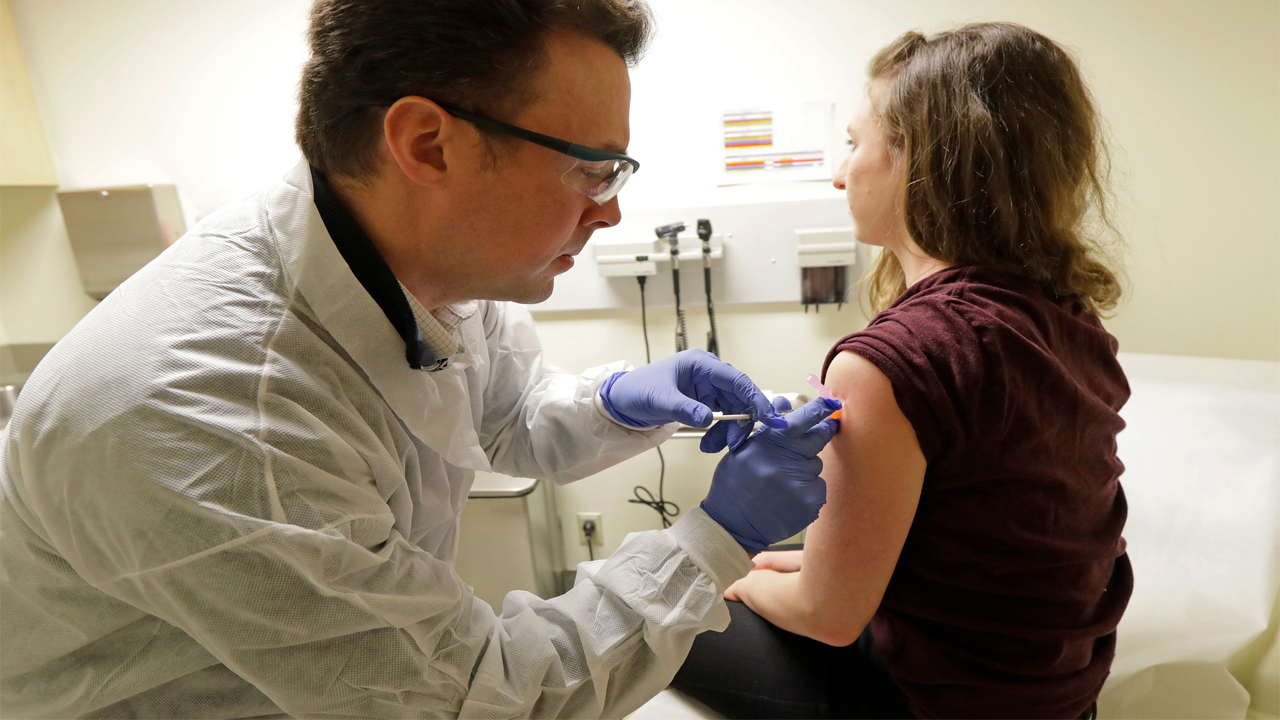Collaboration and standardised approaches for assessing different vaccine efficacy endpoints are key for meaningful comparison of different COVID-19 vaccine candidates to ensure that the most effective vaccines are deployed, say authors of an opinion piece based on a review of evidence, and published in The Lancet Infectious Diseases journal.
A candidate vaccine against SARS-CoV-2 might act against infection, disease, or transmission, and a vaccine capable of reducing any of these elements could contribute to control of the COVID-19 pandemic. In their Review, the authors highlight key challenges for assessing the efficacy of potential COVID-19 vaccines, to provide insight into the seemingly simple question, “Does this COVID-19 vaccine work?”.
Author of the Review, Dr Susanne Hodgson, University of Oxford, UK, said: “It is unlikely that we will see a single vaccine winner in the race against COVID-19. Different technologies will bring distinct advantages that are relevant in different situations, and additionally, there will probably be challenges with manufacturing and supplying a single vaccine at the scale required, at least initially. Taking a standardised approach to measuring the success of vaccines in clinical trials will be important for making meaningful comparisons, so that the most effective candidates can be taken forward for wider use.”
Currently, there are 44 candidates in clinical assessment, with a further 154 in preclinical development, reflecting a range of vaccine technologies. The authors argue that to help compare efficacy between these and future candidates, it is important that standardised, quantifiable endpoints are applied to clinical trials of COVID-19 vaccines, and that their limitations and potential for bias are understood.
The authors also highlight a further challenge: evaluating the efficacy of candidate vaccines to protect against severe disease and death from SARS-COV-2 infection. They argue that long-term follow-up of recipients of candidate COVID-19 vaccines will be important, both to evaluate efficacy against severe disease and mortality, and to ensure the ongoing evaluation of vaccine safety.
Co-author, Dr Kate Emary, University of Oxford, UK says: “To determine whether a vaccine protects against severe COVID-19 disease, a clinical trial needs to show that there are significantly fewer cases of severe disease in individuals vaccinated with a COVID-19 vaccine, compared with individuals who were not. However, only a small proportion of individuals infected with SARS-CoV-2 develop severe disease, which means an extremely large number of volunteers is needed in a clinical trial for there to be enough cases to get a reliable measure of vaccine efficacy. This means that it is likely that we will only know if a vaccine protects against severe disease once it has been deployed and given to a large population.”
The authors also discuss controlled infection studies in humans (challenge trials) as they may offer a way to measure vaccine efficacy as SARS-CoV-2 transmission declines in the community. They argue that while these studies may provide the only means of rapidly assessing a vaccine’s efficacy, the relationship between efficacy in younger individuals in challenge trials and in older and at-risk populations after vaccine deployment remains unclear.
They conclude that in keeping with the development of any novel medical intervention, but particularly so in this context, it is imperative that efficacy outcomes for a SARS-CoV-2 vaccine are critically appraised with scientific rigour to understand their generalisability and clinical significance. They note that although some countries might deploy COVID-19 vaccines on the strength of safety and immunogenicity data alone, the goal of vaccine development is to gain direct evidence of vaccine efficacy in protecting humans against SARS-CoV-2 infection and disease so that manufacture of efficacious vaccines can be selectively upscaled.

 Determining whether a vaccine can protect against severe disease and death from COVID-19 might not be possible in clinical trials, and will likely require long-term, ongoing studies after any candidate is licenced and deployed
Determining whether a vaccine can protect against severe disease and death from COVID-19 might not be possible in clinical trials, and will likely require long-term, ongoing studies after any candidate is licenced and deployed


















.jpg)















